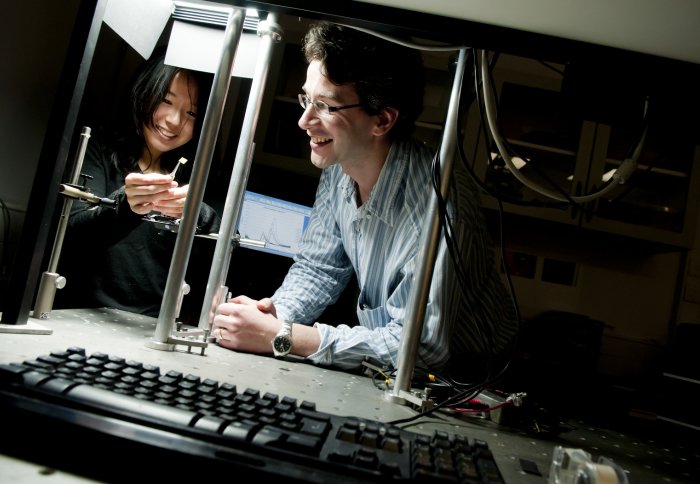Cross department project to work on cutting-edge hybrid solar technology

Imperial College London has received £1.5M to work on next generation hybrid solar panel technology to generate both heat and electrical power.
A new project has been funded by the Engineering and Physical Sciences Research Council (EPSRC) to look into maximising the amount of energy captured by solar panels. The project has members from Imperial's Dyson School of Design Engineering and the departments of Physics and Chemical Engineering working with collaborators from the University of Glasgow.
Solar power systems fall into two broad types. The first type are photovoltaic, where sunlight generates electricity, and the second are solar thermal, which are used for hot-water provision. This new project addresses both in a combined, hybrid Photovoltaic-Thermal (PV-T) collector.
The project aims to achieve higher fluid temperatures than commonly achieved using PV-T collectors in addition to preserving the electrical power output from the panels. Attaining a higher fluid temperature will enable the heat to be used for a larger number of processes in commercial buildings. Using state of the art computing the team will design highly complex surface patterns to maximise light capture and reduce heat losses. These can then be printed onto solar cells using the same, inexpensive, process used to write DVDs.
“We are aiming to expand the application for PV-T solar panels,” says Dr Ned Ekins-Daukes, from the Department of Physics and Principal Investigator for the project, “Our project will start by developing the technology, but also see it through to the point where it can be adopted commercially.” The project is part of Imperial’s Solar+ initiative that enables solar energy technology to be developed in partnership with industry to help speed its entry into the market. Dr Christos Markides of the Department of Chemical Engineering, who will lead activities related to collector prototype modelling, design, construction and testing, added “This is an exciting opportunity to work at the interface of science, engineering and design in order to devise a next-generation solar panel technology with a step change in performance and capabilities compared to current alternatives”.
The project also involves two companies, Naked Energy who are developing novel PV-T collectors and Solar Polar who are developing a system that uses solar heat to provide cooling or refrigeration.
The project High Temperature, High Efficiency PV-Thermal Solar System (EPSRC ref: EP/M025012/1) started on 1 May 2015 and will run until 30 April 2018. The other researchers working on the project are Professor Stefan Maier also from the Department of Physics, Professor Peter Childs, from the Dyson School of Design Engineering and Professor Douglas Paul from the University of Glasgow’s School of Engineering.
Article supporters
Article text (excluding photos or graphics) © Imperial College London.
Photos and graphics subject to third party copyright used with permission or © Imperial College London.
Reporter
Neasan O'Neill
Faculty of Engineering